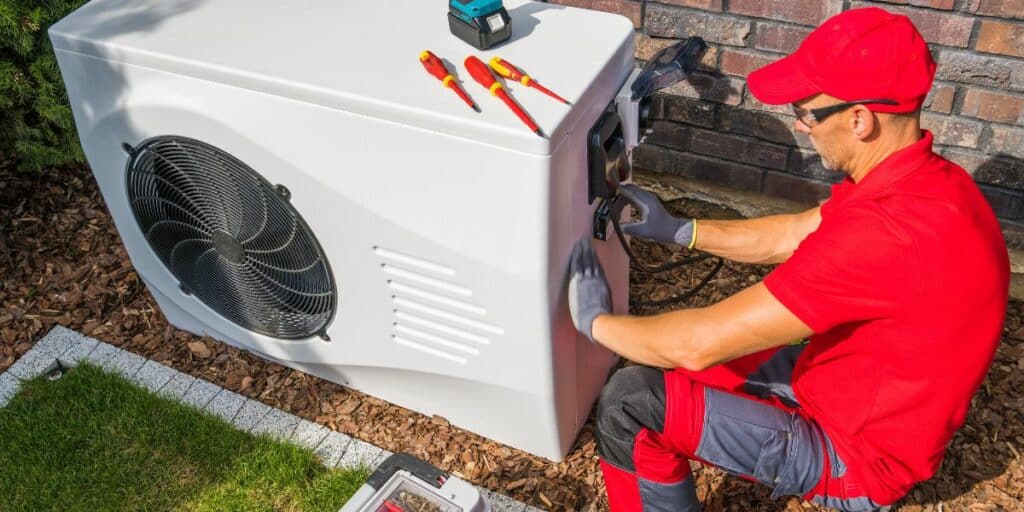The HVACr (Heating, Ventilation, Air Conditioning, and Refrigeration) industry presents a dynamic and evolving landscape, offering a plethora of opportunities for college students. With a growing global emphasis on energy efficiency and sustainable practices, there is an increasing need for professionals with expertise in this area. This article seeks to provide insightful information for students who are exploring career options in this expanding industry.
In the realm of academia, balancing studies with career planning can be challenging. Many students turn to writing services to write essays to manage their academic workload effectively. This approach allows them to allocate more time toward career exploration and skill development in fields like HVACr.
The Basics of HVACr
Heating, Ventilation, Air Conditioning, and Refrigeration (HVACr) systems are not just essential components of modern infrastructure but also critical in ensuring optimal indoor air quality and thermal comfort. HVACr systems are essential in various environments, including homes, commercial spaces, healthcare facilities, and industrial buildings, playing a crucial role in maintaining their functionality.
The HVACr industry has seen significant growth due to technological advancements, particularly in the realms of energy efficiency and smart climate control. This rapid evolution has opened up new avenues for innovation, making HVACr an increasingly attractive career choice for students interested in technology and sustainability.
Career Opportunities in HVACr
In the HVACr sector, career paths are not only varied but also offer the potential for long-term career growth and stability. Roles in this field encompass a wide range of activities, including system installation, repair, maintenance, as well as the design and optimization of the HVACr systems.

Professionals HVAC technician can choose to specialize in different areas, such as residential comfort systems, commercial HVAC, or even industrial refrigeration, each offering distinct challenges and opportunities.
The industry is also ripe for those with entrepreneurial ambitions, allowing for the creation of new businesses in installation or service. Additionally, there are opportunities for career progression into supervisory or managerial roles, making it a field with vast potential for professional development.
Educational Pathways in HVACr
There are several ways to get started in a career in HVACr.
Degree Programs and Certifications
For those interested in pursuing a career in the HVACr industry, obtaining a degree in HVACr or a related discipline like mechanical engineering can provide a comprehensive understanding of the field. These academic programs delve into a range of topics, from the fundamentals of thermodynamics to the intricacies of system design and energy management.
Beyond academic degrees, acquiring recognized industry certifications, such as the EPA Section 608 for handling refrigerants, can greatly augment a professional’s qualifications. These certifications are not only a testament to the individual’s expertise but are often required for compliance with industry standards and regulations.
Combining College Education with Practical Experience
Academic knowledge in HVACr is best complemented by hands-on experience in the field. Students are encouraged to engage in internships, apprenticeships, or even part-time roles within the industry.
This practical experience is invaluable, offering a real-world perspective on the theoretical concepts learned in the classroom. It provides students with the opportunity to apply their knowledge, develop technical skills, and understand the day-to-day challenges and rewards of working in HVACr.
Such experience is often a critical factor in securing employment post-graduation and can provide a significant advantage in the competitive job market.
Balancing Academics and Career Preparation
Juggling academics and career preparation can feel like balancing a stack of textbooks on your nose while riding a unicycle. It’s exhilarating, sure, but one wrong move and it all comes crashing down.
Managing Studies and Field Experience
Balancing the demands of college coursework with hands-on training in HVACr can be daunting. Effective time management is key to successfully navigating this challenge. Utilizing resources such as homework help services or study groups can alleviate academic pressures, allowing students to dedicate adequate time to practical training.
Achieving a balance between theoretical learning and hands-on experience is essential for cultivating a comprehensive skill set and preparing students more effectively for their future roles in the HVACr industry.
The Role of Continuous Learning
The HVACr sector is characterized by its fast-paced evolution, marked by ongoing technological innovations and regular updates in industry standards and regulations. To remain competitive and effective in their careers, students and professionals alike must commit to lifelong learning.
Engaging in further education, whether through formal courses, workshops, or online seminars, is essential. Staying abreast of the latest trends, technologies, and regulatory changes is crucial for anyone aspiring to excel in the HVACr industry.
Navigating the Job Market
The HVACr industry might not be the first that comes to mind when picturing a dynamic, thriving job market. But step into the world of heating, ventilation, air conditioning, and refrigeration, and you’ll find a landscape brimming with opportunity.
Building a Professional Network
Networking is a critical component of career success in the HVACr industry.
Establishing connections with experienced professionals, whether through internships, industry conferences, or online platforms, can provide invaluable insights and opportunities. These relationships can lead to mentorship, job openings, and collaborations, all of which can significantly enhance a professional’s career trajectory.
Preparing for the Future
The future of HVACr is geared toward sustainability, with a growing emphasis on green technologies and intelligent systems. Students should focus on gaining knowledge and skills in emerging areas such as renewable energy solutions, energy-efficient system design, and the integration of smart technologies like IoT.
Being well-versed in these areas will position them favorably in an industry that is increasingly focused on reducing environmental impact and embracing technological innovation.
A career in HVACr offers an exciting and rewarding path for college students. By obtaining the appropriate education, gaining practical experience, and maintaining an eagerness to learn, students are well-positioned to excel in the ever-evolving field of HVACr. As they navigate their academic and career journeys, online resources can provide essential support, allowing them to focus on their professional development in the ever-growing HVACr industry.






